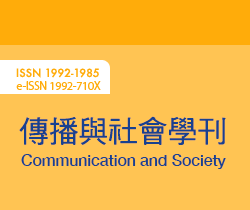 |
| April 2017 |
 |
40 |
|
| 專輯論文Special Issue Articles |
| 輿情:本土概念與本土實踐 |
| Yuqing: A Native Chinese Concept and Its Practice |
|
|
|
 |
 (14347)
(14347)
|
| 作者 |
胡泳、陳秋心 |
| Author |
Yong HU, Qiuxin CHEN |
| 關鍵詞 |
輿論、輿情、輿情監測、輿情產業 |
| Keywords |
public opinion, yuqing, yuqing monitoring system, social control |
| 摘要 |
「輿論」與「輿情」兩詞當下在中國被廣泛混用,其實有各自不同的發展路徑和現實意義。源於西方的「輿論」一詞自近代傳入中國,內涵幾經演繹,逐漸背離其本初義,成為執政黨的治理工具,而「輿情」則是這種中國式輿論在互聯網時代的「控制性變種」,非但不能與輿論混用,也不能對譯為"public opinion"。
互聯網興起後,長久沉默的中國民眾有了有史以來最近似公共領域的言論場,「網絡輿論」成為一種初具政治功能、與統治權力對抗的力量。但在一個集權社會,這種對抗性激起了執政者更強烈的控制需求,也催生了更巧妙的控制手段—輿情產業便是其中之一。輿情監測從最初幫助執政者瞭解網絡「社情民意」,逐漸轉移到消滅網絡輿論本身,最後這項制度「成功」營造出一個「有序」、「穩定」、「輿論高度一致」的互聯網世界,而現實中的各種矛盾和弊端卻可能仍在持續積壓、發酵。
本文認為,輿情監測制度本身包含著邏輯悖論,也反映中國執政者在網絡時代收集信息與應對公眾的機制正在發生變化。在對輿情的利用中,政府一方面試圖與時俱進,更多時候則暴露出其社會治理思維並沒有發生本質變化。
|
| Abstract |
With the emergence and popularization of the Internet, China has slowly developed a public sphere of "Internet public opinion" in parallel with and counterbalancing the so-called "mainstream public opinion." However, in the highly centralized Chinese society, this alternative force has provoked the Party to tighten its control over speech by invent ingenious methods of micro social management. This increased control has led to the emergence of yuqing studies and a thriving yuqing industry of intelligence, surveillance, and policing agencies that monitor the "sentiments" of online public opinion. The monstrous yuqing monitoring system has transformed from gathering intelligence and analyzing "social conditions and public opinion" to manipulating and fabricating public opinion on the Internet. The yuqing system has "successfully" constructed an orderly and harmonious cyberspace in which positive "public opinions" are expressed. However, in doing so, it has brushed aside and buried real online public opinions about issues and conflicts between and among regions, social classes, religions, ethnicities, the state, and society. The operations of the yuqing monitoring system reflect the paradox of China's Internet management regime: there is more information available to average Internet users but less authenticity in the sentiments expressed. The change in lexicon and practice from yulun to yuqing is a result of the change in China's information governance and social management. By using yuqing, the Party-State intends to keep pace with the times to promote good governance at all levels. However, yuqing has been used to quell dissent, not express fundamental changes based on the "sentiments" of the masses. The monitoring of yuqing has become an organized mechanism of social control. It serves the needs of the Party and government to contain and even eliminate public opinion.
本文引用格式﹕
胡泳、陳秋心(2017)。〈輿情:本土概念與本土實踐〉。《傳播與社會學刊》,第40 期,頁33–74。
Citation of this article:
Hu, Y., & Chen, Q. (2017). Yuqing: A native Chinese concept and its practice. Communication & Society, 40, 33–74.
|
|
|
 |
| No.74 2025 October |
 |
| No.73 2025 July |
 |
| No.72 2025 April |
 |
| No.71 2025 January |
 |
| No.70 2024 October |
|
